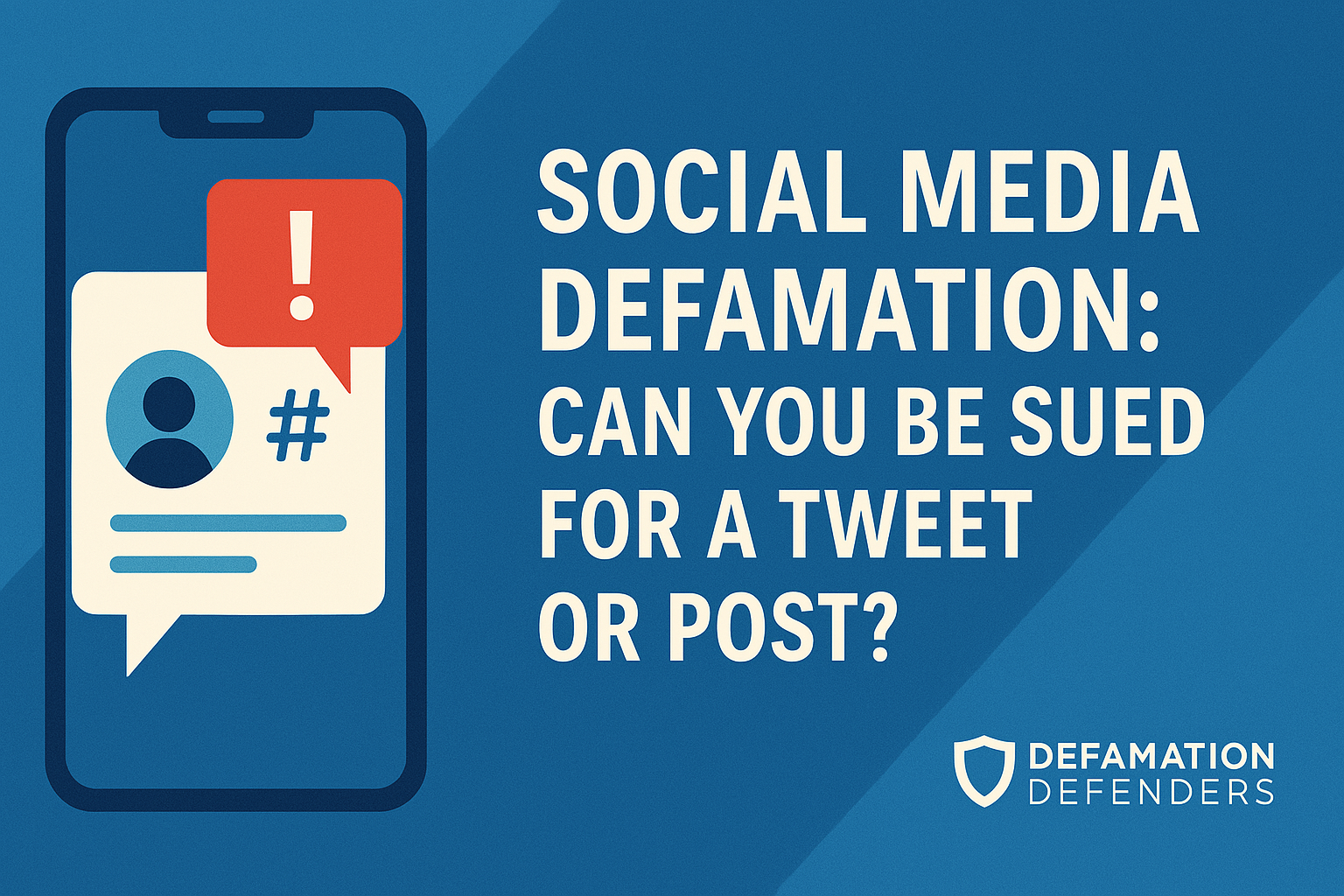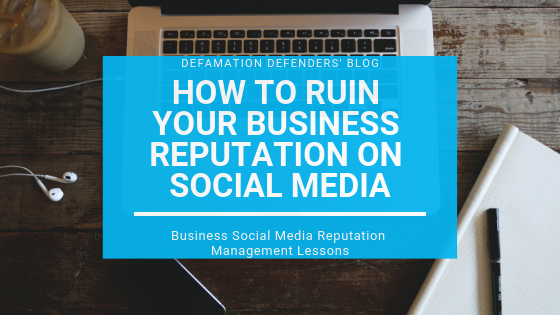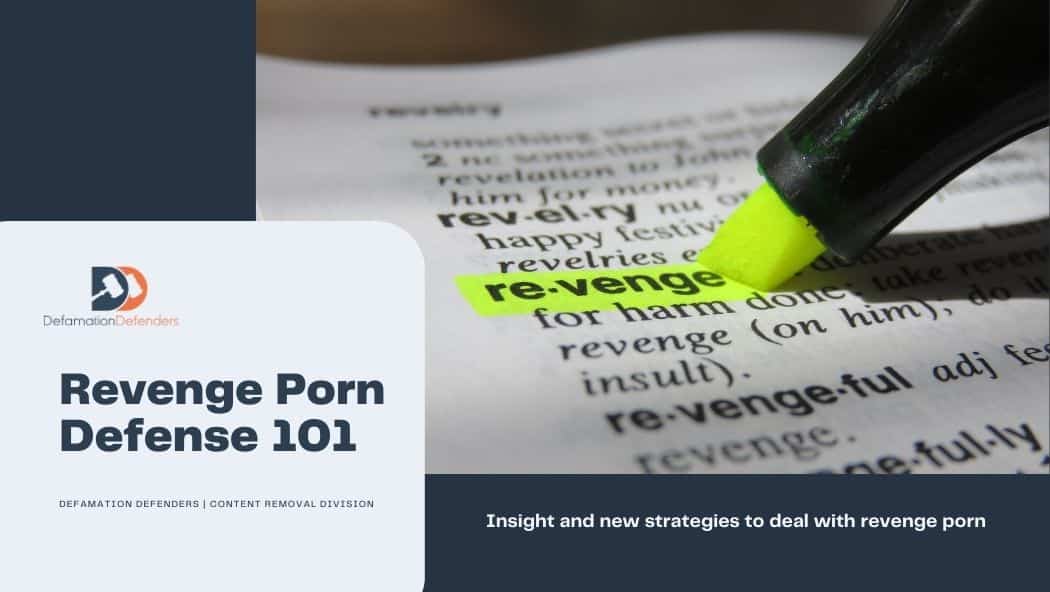Estimated reading time: 4 minutes
Table Of Content
What Is Social Media Defamation?
Social media defamation happens when someone publishes a false statement of fact about another person or business on platforms like Twitter, Facebook, Instagram, LinkedIn, Reddit, or TikTok. For a statement to be legally defamatory, it must:
- Be a false assertion of fact
- Be published or shared publicly
- Refer clearly to a specific person or business
- Harm that entity’s reputation or livelihood
- Be made negligently or with actual malice
Statements of opinion, satire, or vague criticisms usually don’t qualify. But statements that claim specific misconduct—such as criminal activity, fraud, or professional incompetence—can quickly cross into legally actionable territory.
Real Cases of Defamation on Twitter and Other Platforms
Courtney Love’s Twitter Trial
Singer Courtney Love was sued for tweeting that her former attorney was “bought off.” Although she won the case, it was one of the first high-profile examples of defamation on Twitter.
Elon Musk and the “Pedo Guy” Case
In 2018, Elon Musk tweeted that a British cave rescuer was a “pedo guy.” Musk was sued for defamation. While he won in court, the case illustrated how social media statements can trigger real legal battles.
Yelp and Google Reviews
Numerous small business owners have successfully sued users for leaving fake or defamatory reviews. Even if the statements are made anonymously, they can be traced and addressed through subpoenas.
Source: Electronic Frontier Foundation – Defamation Online
Can You Be Sued for a Social Media Post?
Yes. Anyone who posts defamatory content online can be sued—even if:
- The post was deleted afterward
- The account is anonymous or private
- The platform is “just social” and not news-oriented
If the statement is false and harmful, you’re at legal risk. U.S. courts treat social media the same as any other form of publication.
What About Retweets or Shares?
You can still face liability if you amplify false and harmful content. While courts may be more lenient toward reposters, knowingly sharing defamatory content can make you complicit.
Does Section 230 Protect Users?
No. Section 230 of the Communications Decency Act protects platforms—not individual users. You can’t sue Twitter for someone else’s tweet, but you can sue the person who wrote it.
Elements of a Strong Social Media Defamation Case
To win a case, the plaintiff must show:
- The statement was false
- It was shared with at least one third party
- It clearly referred to the plaintiff
- It caused harm
- It was made with negligence or malice
Public figures must prove actual malice—that the poster knew the statement was false or acted with reckless disregard.
Common Types of Defamatory Social Media Content
- False accusations of criminal activity
- Claims of fraud, scamming, or theft
- Allegations of abuse or harassment without proof
- Posts calling someone a “liar,” “predator,” or “racist” with no factual basis
- Fake screenshots or doctored images used to deceive
“You can be held liable for every false word you post online—especially if it causes harm.” — Legal Information Institute
How to Protect Yourself Online
Think Before You Post
Ask yourself:
- Is this statement verifiably true?
- Can I back it up with facts or documentation?
- Could this hurt someone’s reputation unfairly?
Add Disclaimers When Appropriate
Use language like:
“In my opinion…” or “This is just speculation…”This can help clarify that the content is not being presented as factual.
Avoid Naming or Tagging Individuals
You’re less likely to be sued if your post doesn’t identify a specific person or business.
What to Do If You’re Accused of Defamation
- Do not delete the post immediately — Save a copy for your records.
- Review your statement — Was it true? Was it opinion?
- Consult a defamation attorney — Get advice before responding.
- Avoid further commentary online — Anything you say can be used in court.
How Defamation Defenders Can Help
If you’re facing defamation or being wrongly accused, Defamation Defenders offers:
- Legal coordination for social media cases
- Evidence preservation and reporting support
- Online content removal assistance
- SEO suppression strategies for false content
📞 Schedule a Free Strategy Session to protect your online reputation.
FAQ: Sued for a Tweet or Social Media Post
Yes. If you have a screenshot or archive, the post can still be used as evidence.
Opinions are protected speech. But stating false claims of fact—even in an opinionated tone—can still qualify as defamation.
Possibly. Courts evaluate intent and whether you knew the content was false.
Damages range from a few thousand dollars to millions, depending on reputational harm and intent.
Yes. If the review includes false information that damages the business, it may qualify as defamation.
If you found this article interesting, you might also like these posts from our blog:





